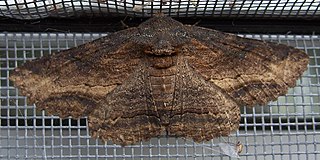
Zale lunata, the lunate zale, is a moth of the family Erebidae. The species was first described by Dru Drury in 1773. It is found throughout the east and west of North America. The wingspan is 40–55 mm. The moth flies from year round depending on the location. The larvae feed on various deciduous trees, such as maple, willow and Prunus.

Zale is a genus of moths in the family Erebidae erected by Jacob Hübner in 1818.
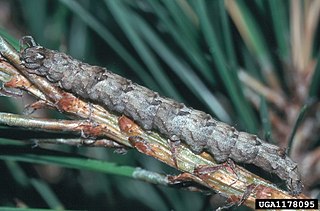
Zale metatoides, the washed-out zale or jack pine false looper, is a moth of the family Noctuidae. The species was first described by James Halliday McDunnough in 1943. It is found in barrens and pine woodlands from at least Wisconsin and probably Manitoba to Maine, south to the mountains of Georgia. The range in the Gulf States is not certain.
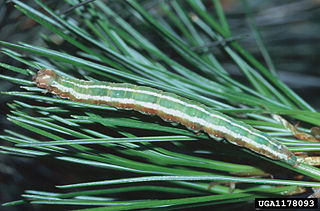
Zale helata, the brown-spotted zale, is a moth of the family Noctuidae. The species was first described by James Halliday McDunnough in 1943. It is found in barrens and pine woodlands from Manitoba to Maine, south to northern Alabama and Texas.
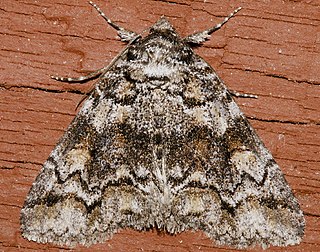
Zale duplicata, the pine false looper zale, pine false looper, banded similar-wing or grey similar-wing, is a moth of the family Noctuidae. The species was first described by Charles J. S. Bethune in 1865. It is found in woodlands and forests from British Columbia to Nova Scotia, south to the mountains of Georgia and Texas.
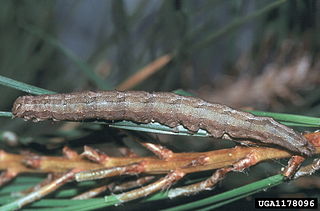
Zale obliqua, the oblique zale, is a moth of the family Noctuidae. The species was first described by Achille Guenée in 1852. It is found in barrens and pine woodlands of the United States from Ohio to southern Maine, south to northern Florida, Mississippi and Texas.
Zale obsita is a species of moth in the family Erebidae. It was described by Achille Guenée in 1852 and is found in North America.
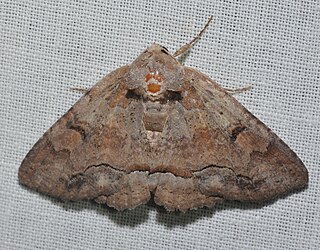
Zale confusa, the confused zale moth, is an owlet moth in the family Erebidae. The species was first described by James Halliday McDunnough in 1940. It is found in North America.
Zale phaeocapna is a species of moth in the family Erebidae. It is found in North America.
Zale unilineata, the one-lined zale, is a species of moth in the family Erebidae. It is found in North America.

Zale minerea, the colorful zale, large false looper or mahogany similar-wing, is an owlet moths in the family Erebidae. The species was first described by Achille Guenée in 1852. It is found in North America.

Zale horrida, the horrid zale, is a species of moth in the family Erebidae. The species was first described by Jacob Hübner in 1819. It is found in North America.
Zale sabena is a species of moth in the family Erebidae. It is found in North America.
Zale bethunei, or Bethune's zale, is a species of moth in the family Erebidae first described by Smith in 1908. It is found in North America.
Zale declarans, the Dixie zale, is an owlet moth in the family Erebidae. The species was first described by Francis Walker in 1858. It is found in North America.
Zale fictilis, the fictilis zale moth, is a species of moth in the family Erebidae. It is found in North America.
Zale peruncta is a species of moth in the family Erebidae. It is found in North America.
Zale strigimacula is a species of moth in the family Erebidae. It is found in North America.
Zale perculta, the Okefenokee zale moth, is a species of moth in the family Erebidae. It is found in North America.
Zale aeruginosa, the green-dusted zale, is a species of moth in the family Erebidae. It is found in North America.









